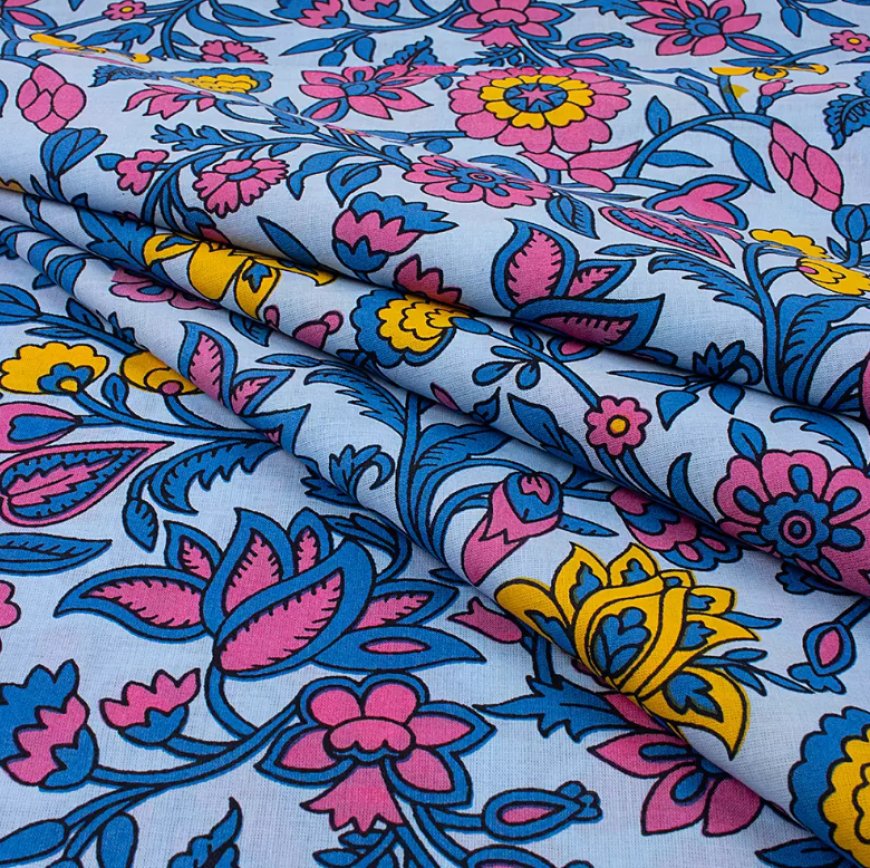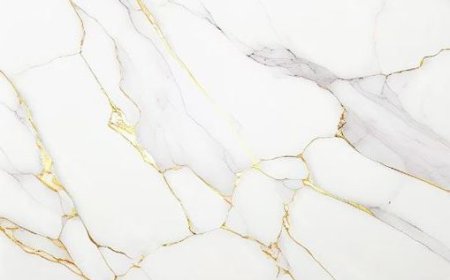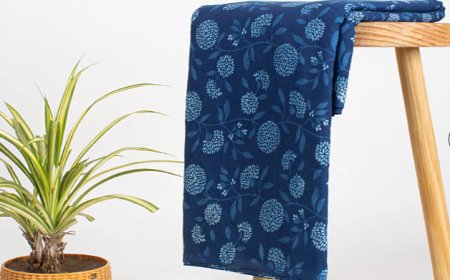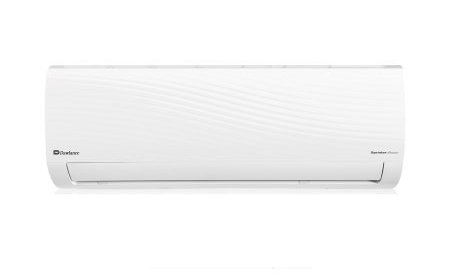Organic Cotton Fabric: Sustainable, Soft, and Smart Choice for the Future
Organic cotton fabric stands at the intersection of sustainability, comfort, and ethical responsibility. Its rise in popularity is not a trend but a necessary shift toward a cleaner, greener future.

Organic cotton fabric is a natural textile made from cotton plants grown without synthetic pesticides, herbicides, or genetically modified organisms (GMOs). Unlike conventional cotton, which relies heavily on chemical inputs, organic cotton is cultivated using methods and materials that have a low impact on the environment. These include biological pest control, crop rotation, and organic fertilisers, ensuring a cleaner, more sustainable product from seed to fabric.
The result is a soft, breathable, hypoallergenic fabric that is not only safer for the skin but also gentler on the planet. As the demand for eco-friendly textiles grows, organic cotton fabrichas become the cornerstone of ethical and sustainable fashion.
How Organic Cotton is Grown: A Chemical-Free Cultivation Process
The cultivation of organic cotton follows strict environmental standards, usually certified by global bodies such as GOTS (Global Organic Textile Standard) or OEKO-TEX. These standards prohibit the use of synthetic agrochemicals and ensure sustainable farming practices such as:
-
Non-GMO seeds: Only natural seeds are used, preserving the integrity of plant biodiversity.
-
Composting and organic manure: Natural fertilisers enrich the soil without polluting groundwater.
-
Manual or biological pest control: Beneficial insects or plant-based solutions replace chemical pesticides.
-
Water conservation: Organic cotton is typically grown in rain-fed areas, significantly reducing water usage compared to conventional cotton farming.
This chemical-free approach results in healthier soil, cleaner air and water, and improved biodiversity, making organic cotton farming a model for sustainable agriculture.
The Benefits of Organic Cotton Fabric
1. Skin-Friendly and Hypoallergenic
Organic cotton fabric is free from chemical residues, making it an ideal choice for individuals with sensitive skin, eczema, or allergies. The absence of toxins and artificial finishes ensures a soft, breathable texture that feels gentle on the skin, especially for infants and people with chronic skin issues.
2. Environmentally Sustainable
Conventional cotton accounts for 16% of the world's insecticide use, a massive ecological burden. In contrast, organic cotton:
-
Reduces soil and water pollution
-
Supports biodiversity
-
Encourages carbon sequestration
-
Uses up to 91% less water in some growing regions
Organic farming not only produces cleaner fabric but also actively restores and maintains healthy ecosystems.
3. Ethical and Fair Labour Practices
Many organic cotton farms are part of fair trade cooperatives, ensuring farmers receive fair wages and work in safe, humane conditions. Certifications like Fair Trade and GOTS mandate transparency in the supply chain, protecting both people and the environment.
4. Biodegradable and Circular
Being a 100% natural fibre, organic cotton is fully biodegradable, contributing nothing to landfill waste when disposed of properly. It can also be recycled and upcycled, making it ideal for circular fashion initiatives.
5. Durable and Long-Lasting
Organic cotton fibres are typically stronger and more resilient because they are not damaged by chemicals during growth or processing. This makes the fabric long-lasting, reducing the need for frequent replacements and thereby minimising consumer waste.
Types of Organic Cotton Fabric
Organic cotton is available in various weaves and finishes, each with its specific uses:
1. Organic Cotton Muslin
A light, breathable fabric often used in baby wraps, swaddles, and summer garments. Its open weave structure allows maximum airflow.
2. Organic Cotton Jersey
A stretchable knit fabric is popular inT-shirts, leggings, and casual wear. It offers comfort with a bit of give, suitable for everyday clothing.
3. Organic Cotton Poplin
Tightly woven and smooth, ideal for shirts, dresses, and bedding. Known for its crisp finish and durability.
4. Organic Cotton Canvas
Heavyweight and robust, often used in bags, upholstery, and outerwear. Offers a sustainable alternative to synthetic heavy-duty fabrics.
5. Organic Cotton Fleece
Soft and plush, this fabric is perfect for hoodies, sweatpants, and blankets. Offers warmth while remaining breathable and eco-conscious.
Certifications That Ensure Organic Integrity
To ensure the authenticity of organic cotton fabric, it is essential to look for trusted certifications, including:
-
GOTS (Global Organic Textile Standard): Covers every stage of production, from harvesting to labelling, ensuring sustainability and social responsibility.
-
OEKO-TEX Standard 100: Tests for harmful chemicals and guarantees the fabric is safe for human use.
-
USDA Organic: Verifies that the cotton was grown without synthetic agricultural chemicals.
-
Fair Trade Certified: Ensures ethical working conditions and fair wages.
These certifications offer consumers peace of mind that their purchase aligns with environmental and ethical values.
Applications of Organic Cotton Fabric
Organic cotton fabric is a versatile material used across numerous industries:
1. Fashion Industry
Leading sustainable fashion brands are incorporating organic cotton into their collections, offering:
-
T-shirts, dresses, and jeans
-
Lingerie and activewear
-
Childrens and baby clothing
Organic cotton garments are stylish, breathable, and environmentally responsible.
2. Home Textiles
Organic cotton is becoming a preferred choice in home furnishings due to its safety and durability:
-
Bedding and sheets
-
Curtains and cushion covers
-
Towels and robes
Consumers now seek comfort that aligns with sustainable values.
3. Medical and Personal Care
Organic cotton is also used in:
-
Bandages and gauze
-
Reusable makeup pads
-
Sanitary pads and diapers
Its hypoallergenic nature and chemical-free profile make it perfect for sensitive applications.
4. Eco-Friendly Packaging
With a shift toward sustainable packaging, brands are using organic cotton for:
-
Reusable tote bags
-
Pouches and wraps
-
Gift bags
These reduce the reliance on single-use plastics and promote reusability.
Caring for Organic Cotton Fabric
To maintain the quality and lifespan of organic cotton, follow these care tips:
-
Wash in cold water with eco-friendly detergent.
-
Avoid bleach and harsh chemicals.
-
Air dry when possible to reduce energy use
-
Iron on low heat if needed
-
Store in a dry, ventilated area
Organic cotton softens with every wash, enhancing comfort without sacrificing durability.
Where to Buy Organic Cotton Fabric
Trusted sources for purchasing genuine organic cotton fabric include:
-
Ethical fashion brands and e-commerce platforms like Pact, Thought, and People Tree
-
Local fabric stores specialising in natural textiles
-
Certified online retailers offering GOTS-certified options
-
Wholesale organic fabric suppliers for designers and businesses
Always verify certifications before buying to ensure you're getting true organic quality.
Conclusion: Organic Cotton Fabric for a Healthier Future
Organic cotton fabric stands at the intersection of sustainability, comfort, and ethical responsibility. Its rise in popularity is not a trend but a necessary shift toward a cleaner, greener future. By choosing organic cotton, we support healthier ecosystems, fairer trade practices, and a conscious lifestyle that respects both people and the planet.





















![Top 11 Real Estate Mobile App Developers in Riyadh, Saudi Arabia [2025 Edition]](https://www.philadelphialivenews.com/uploads/images/202506/image_430x256_68621a9e48997.jpg)






















![Top 11 Real Estate Mobile App Developers in Riyadh, Saudi Arabia [2025 Edition]](https://www.philadelphialivenews.com/uploads/images/202506/image_140x98_68621a9e4a204.jpg)

